|
|
|
|
Without a doubt the biggest news in the science world this week came from California, where Lawrence Livermore National Laboratory’s National Ignition Facility announced that the energy of 192 lasers beamed at hydrogen isotopes in a canister made of gold produced more energy than the lasers put in – a major turning point for the long-pursued goal of controlled nuclear fusion.
Nuclear engineering professor Carolyn Kuranz from the University of Michigan explains why this experiment was a big deal and cites some of the technical challenges before fusion can – perhaps one day, decades from now – be a source of electric energy. If you’re interested in a deeper dive on nuclear fusion, check out a podcast we produced earlier this year that explains how scientists in Europe are using a different approach – called magnetic confinement – to fusing atoms to produce energy.
Another big science announcement yesterday came with the release of the annual Arctic Report Card, which details the profound changes occurring in the rapidly warming Arctic. One of the key changes is that the region is seeing more precipitation, and it is falling as rain when historically it would have been snow. “Arctic-wide, this shift toward wetter conditions can disrupt the lives of animals and plants that have evolved for dry and cold conditions,
potentially altering Arctic peoples’ local foods,” authors of the report write.
In another instance of climate change affecting weather patterns, this year’s drought has constricted the flow of goods through the Mississippi River, one of the country’s most important shipping corridors. Earth scientists from the University of Memphis write that this year’s headaches are a sign of things to come as climate change increases the chance of drought as well as flooding. “This year’s historic event in the Mississippi River watershed is evidence that
climate change is altering large rivers as high temperatures increase evaporation and make soil more ‘thirsty,’” they write.
Also in this week’s science news:
If there’s a subject you’d like our team of science editors to investigate, please reply to this email.
|

|
Martin La Monica
Director of Editorial Projects and Newsletters
|
|
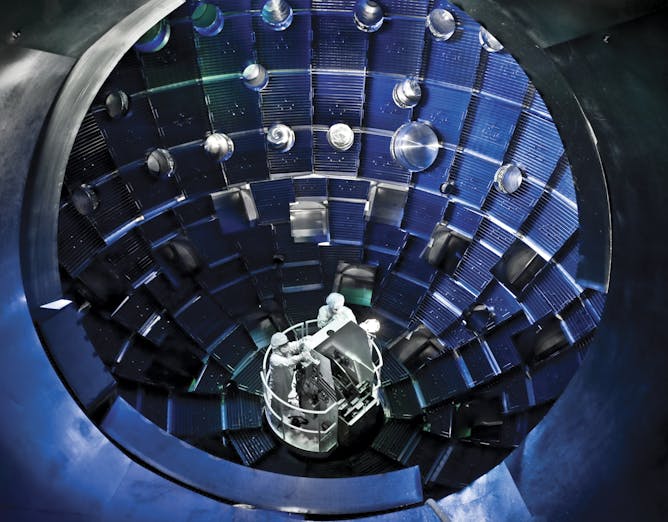
The target chamber at the National Ignition Facility has been the site of a number of breakthroughs in fusion physics.
U.S. Department of Energy/Lawrence Livermore National Laboratory
Carolyn Kuranz, University of Michigan
The promise of abundant, clean energy powered by nuclear fusion is one big step closer thanks to a new experiment. The results are a historic scientific milestone, but energy production remains a ways off.
|
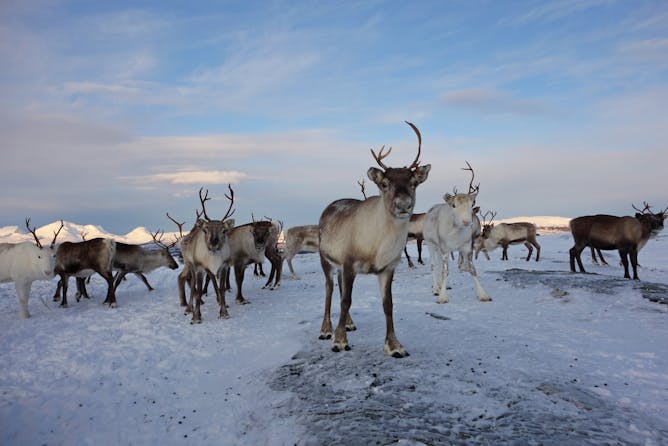
Rainier winters make life more difficult for Arctic wildlife and the humans who rely on them.
Scott Wallace/Getty Image
Matthew L. Druckenmiller, University of Colorado Boulder; Rick Thoman, University of Alaska Fairbanks; Twila Moon, University of Colorado Boulder
The annual report is also a reminder that what happens in the Arctic affects the rest of the world.
|

A barge maneuvers its way down the drought-narrowed Mississippi River at Tiptonville, Tenn., Oct. 20, 2022.
AP Photo/Jeff Roberson
Ray Lombardi, University of Memphis; Angela Antipova, University of Memphis; Dorian J. Burnette, University of Memphis
Record low water levels on the Mississippi and other major rivers, as seen in 2022, could become more common, threatening transportation of many key goods and raising prices.
|
|
|
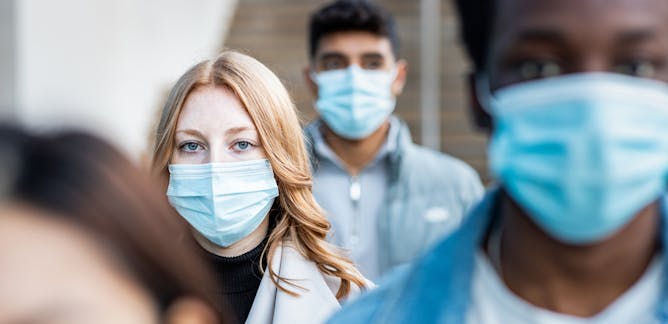
Emily Toth Martin, University of Michigan; Marisa Eisenberg, University of Michigan
Decades of research show that respiratory illnesses are dramatically reduced when people wear face masks.
| |
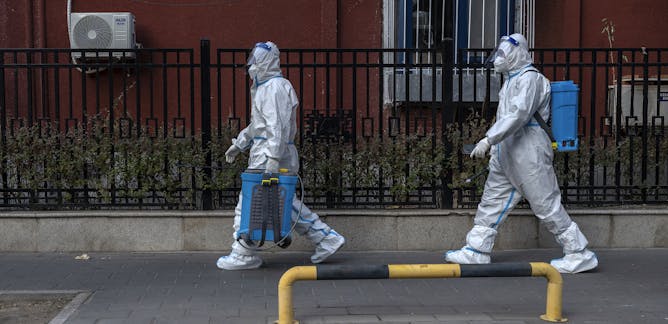
Elanah Uretsky, Brandeis University
Strict lockdowns, quarantines and testing have prevented many people in China from catching COVID-19. With concerns over Chinese vaccine efficacy and uptake, China may be facing a looming COVID-19 surge.
|
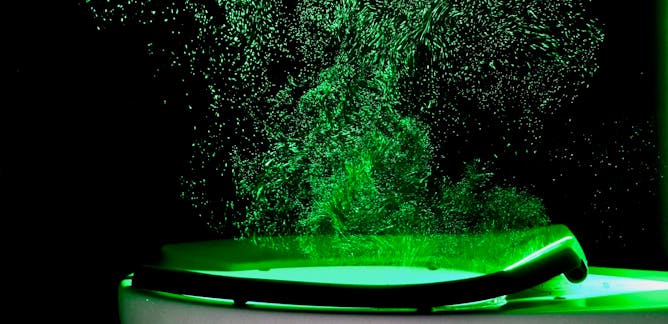
John Crimaldi, University of Colorado Boulder
Toilets eject aerosol droplets that may carry disease-causing pathogens. Learning about how these particles move could help reduce exposure in public restrooms.
| |

Kumi Nagamoto-Combs, University of North Dakota
Food allergies have been linked to behavioral and mood disorders, including depression, anxiety and ADHD.
|
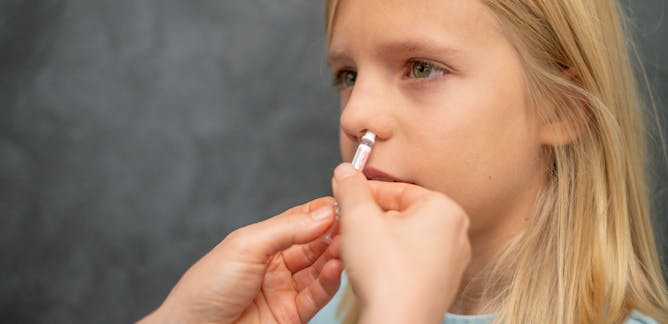
Michael W. Russell, University at Buffalo
An effective nasal vaccine could stop the virus that causes COVID-19 right at its point of entry. But devising one that works has been a challenge for researchers.
| |
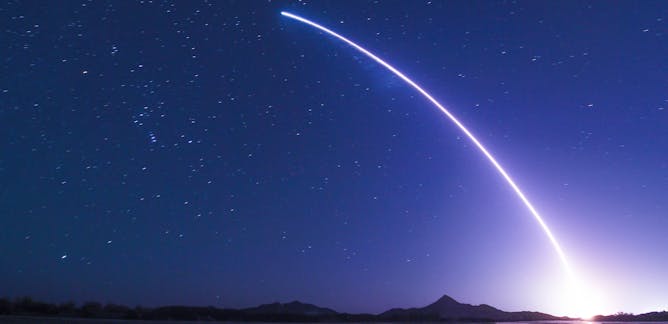
Eytan Tepper, Indiana University; Scott Shackelford, Indiana University
China has completed construction of the Tiangong space station, and science projects are now underway. The station is an important piece of China’s ambitious plans for space activity in coming years.
|
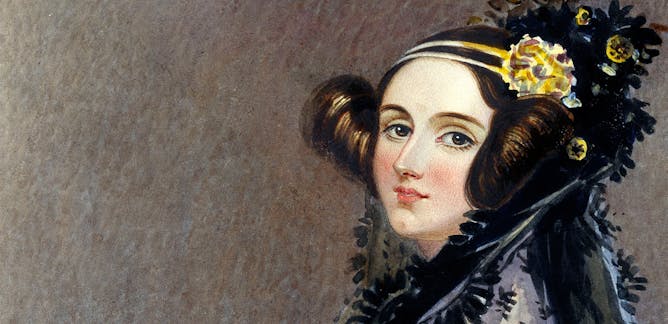
Corinna Schlombs, Rochester Institute of Technology
Lovelace was a prodigious math talent who learned from the giants of her time, but her linguistic and creative abilities were also important in her invention of computer programming.
| |
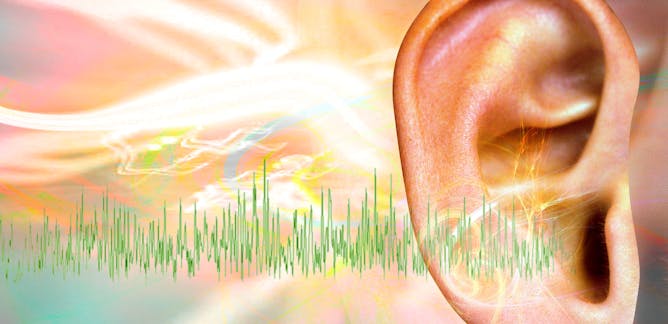
Bradley Kesser, University of Virginia
Although there’s no cure for tinnitus, help is out there – including sound-generating devices, background noise and talk therapy.
|
|
|
|
|
-
Tobias Eckle, University of Colorado Anschutz Medical Campus
There is a best time to take your medications, but your doctor may not know when that is. Researchers are still figuring it out, one drug at a time.
-
Matthew Lackner, UMass Amherst
Some of the most powerful offshore wind is over water too deep for a standard wind turbine. Engineers found a way around the problem.
-
Ken Ho, University of Pittsburgh Health Sciences
Prejudice and stigma can discourage the communities most affected by infectious diseases from seeking care. Inclusive public health messaging can prevent misinformation and guide the most vulnerable.
|
|
|
| | |
| | |
| |
| |
| |
|
|
|